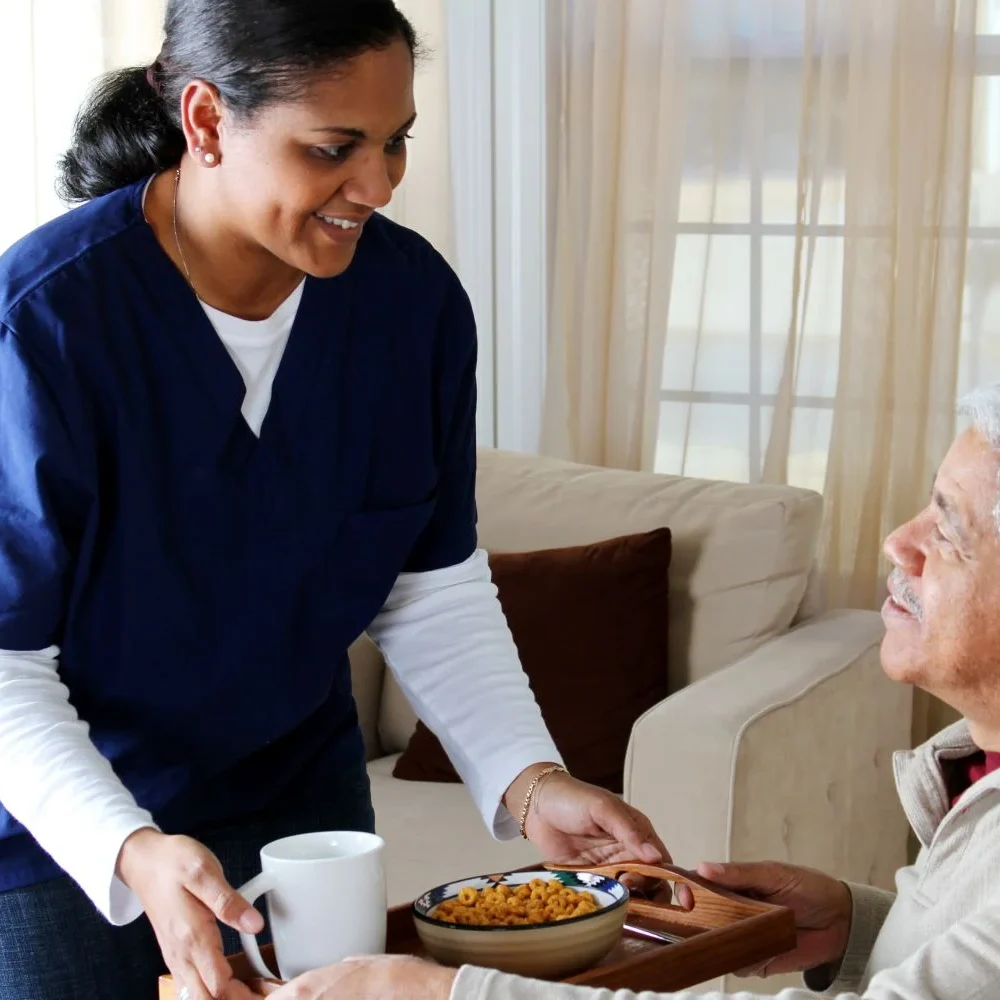
Last Updated on August 4, 2025 by Beth Skwarecki
Looking after an aging parent or grandparent means more than ensuring they take medicine or eat on time. It’s about keeping them comfortable, respected, and surrounded by familiar routines that feel like home. That’s why choosing the right at-home care matters so much.
The challenge is knowing where to start. With so many services, how do you find care that truly understands your loved one’s needs and personality? The answer lies in knowing what makes support feel personal and how to spot the providers who treat your family like their own.
So, how do you cut through the noise and find care that feels right? Read on to find out!
Understand What Your Loved One Needs
Before looking for at-home care, you must understand your loved one’s daily life. Do they need help with cooking, cleaning, and transportation, or do they also need medical support? Some families only require part-time companionship, while others need round-the-clock care for conditions such as dementia or mobility challenges.
The type of help at home your family needs will shape your search. A person who mainly needs social interaction requires different qualities in a caregiver than someone managing complex medical conditions.
You should also ask your loved one what they want. Involving them in decisions helps them feel respected and valued. When they share their preferences, you’ll have a clearer idea of the kind of aged care provider who will fit into their life rather than disrupt it.
Look for Care That Puts Relationships First
Quality elder care extends beyond completing daily tasks. It’s about connection. A caregiver who takes the time to listen, share stories, and understand routines will make your loved one feel at ease. This personal bond can also improve their overall well-being, reduce loneliness, and give them someone they trust.
When you speak to potential providers, ask how they match caregivers with families. Do they consider personalities, interests, or cultural backgrounds? Services that prioritize these factors often create stronger, more comfortable relationships.
Check Experience and Training
Compassion is vital, but so are skills. At-home caregivers should know how to manage basic health needs, handle emergencies, and support complex care needs like Alzheimer’s or Parkinson’s if needed. Inquire about training, certifications, and ongoing education to ensure they stay current.
Experience also matters. A caregiver who has worked with people in similar situations may anticipate challenges more easily. They’ll likely have strategies for easing transitions, handling difficult moments, and building trust with family members.
Involve the Whole Family in the Process
Choosing at-home care is a big step, and it’s easier when everyone is on the same page. Hold family discussions early to share responsibilities and expectations. This avoids misunderstandings later and ensures your loved one’s needs remain the priority.
Involving siblings or close relatives also helps create a support network. While professional caregivers handle day-to-day tasks, family members can still provide visits, emotional support, and oversight to ensure the arrangement feels right.
Ask the Right Questions
When meeting with home health agencies or independent caregivers, don’t be afraid to ask detailed questions. Be sure to find out how they screen their staff, handle emergencies, and communicate with families. Ask about flexibility if care needs change over time and what backup plans are in place if a caregiver is unavailable.
It’s also worth asking about routines. How do they help aging parents feel comfortable in their own homes? Do they encourage independence where possible? Answering these questions will help gauge whether their approach aligns with your family’s values.
Look for Signs of Respect and Compassion

Pay attention to how caregivers speak to and about older adults. Do they talk with patience and kindness or sound rushed and impersonal? Watch for signs, such as whether they make eye contact or address your loved one directly instead of speaking over them.
These details may seem minor, but they reveal whether someone treats caregiving as a job or a meaningful relationship. The right fit will make your loved one feel valued and understood.
Visit and Trial When Possible
Families considering a caregiving facility can benefit from arranging a trial visit or short-term stay before making a long-term commitment. Observing how your loved one interacts with the caregiver during this period helps determine whether the arrangement feels comfortable and supportive.
A trial period also allows the caregiver to understand daily routines and personal preferences at a manageable pace. Should the match seem unsuitable, adjustments can be made early, reducing stress for everyone involved and ensuring a better fit moving forward.
Trust Your Instincts
Sometimes the best guide is your gut feeling. A sense of unease during interviews or visits should never be ignored, as genuine care should bring reassurance rather than concern. Paying attention to these impressions helps guide decisions toward arrangements that truly feel right for your loved one.
Positive signals can be just as telling. A noticeable lift in mood, greater willingness to talk, or a relaxed demeanor around the caregiver often suggests that a strong connection is forming. The ideal choice offers support for daily tasks while creating a sense of emotional comfort and trust.
Conclusion
Choosing at-home aged care that feels like family takes patience, but it’s worth the effort. The above tips can help you find caregivers who understand routines, respect preferences, and build meaningful connections.
When you find the right support, you give your loved one dignity, companionship, and the reassurance that they’re cared for. For families, that peace of mind becomes one of the most lavish comforts during this stage of life.

Beth is Cloudmineinc’s senior health editor and a certified personal trainer. She has over 10 years experience as a science journalist and is the author of two books. She deadlifts over 315 lbs.